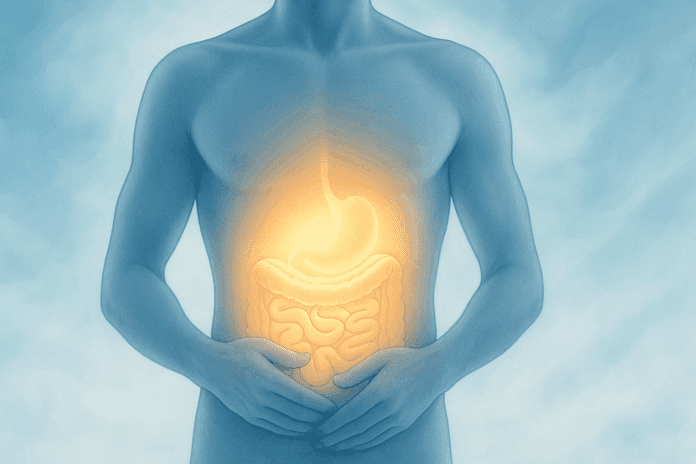Our stomach is one of the most sensitive indicators of overall health, often alerting us to internal shifts long before other systems do. That unsettling tightness in the upper abdomen, the persistent bloating that doesn’t resolve with rest, or that peculiar abdominal bubbling feeling can raise concern and curiosity alike. While most people have experienced odd stomach feelings at some point, understanding what they signify and when to seek medical insight is crucial. In this article, we explore the complexities behind sensations such as stomach tightness, bloating, nausea, and the more subtle cues like a funny feeling in the stomach or the sensation of fullness without eating.
You may also like: How Gut Health Affects Mental Health: Exploring the Gut-Brain Connection Behind Anxiety, Mood, and Depression
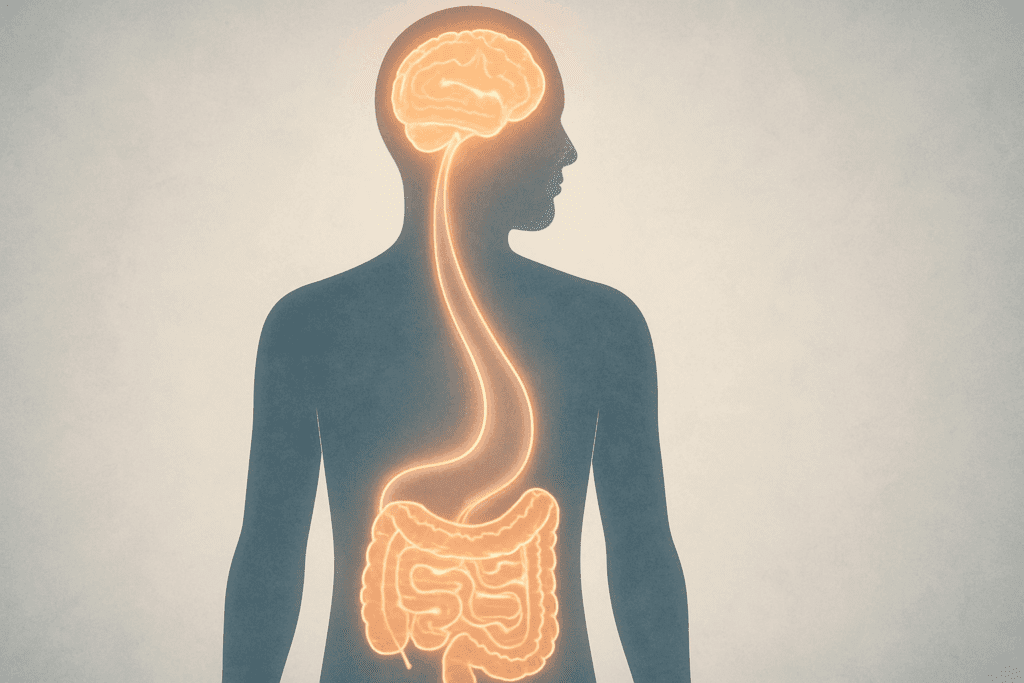
The Language of the Gut: Decoding Sensory Signals from the Abdomen
When someone asks, “Why does my stomach feel tight?” they are often describing a diffuse discomfort across the upper abdomen, sometimes accompanied by bloating or cramping. This tightness isn’t always painful in the conventional sense—it may present as pressure, stiffness, or a strange stomach feeling that’s hard to define. In many cases, this tight sensation can coexist with a feeling of fullness in the stomach without eating, contributing to both physical discomfort and anxiety.
This phenomenon can be attributed to several mechanisms, including gas retention, visceral hypersensitivity, altered gut-brain signaling, or tension in the abdominal wall. Functional gastrointestinal disorders like functional dyspepsia or irritable bowel syndrome (IBS) frequently present with these symptoms. The gut-brain axis, a complex bidirectional communication network between the central nervous system and the enteric nervous system, plays a pivotal role in this communication. Anxiety and stress can amplify gut sensations, leading to a cycle where emotional distress worsens physical symptoms such as bloating, upper stomach pain, or stomach cramps and bloating and nausea.
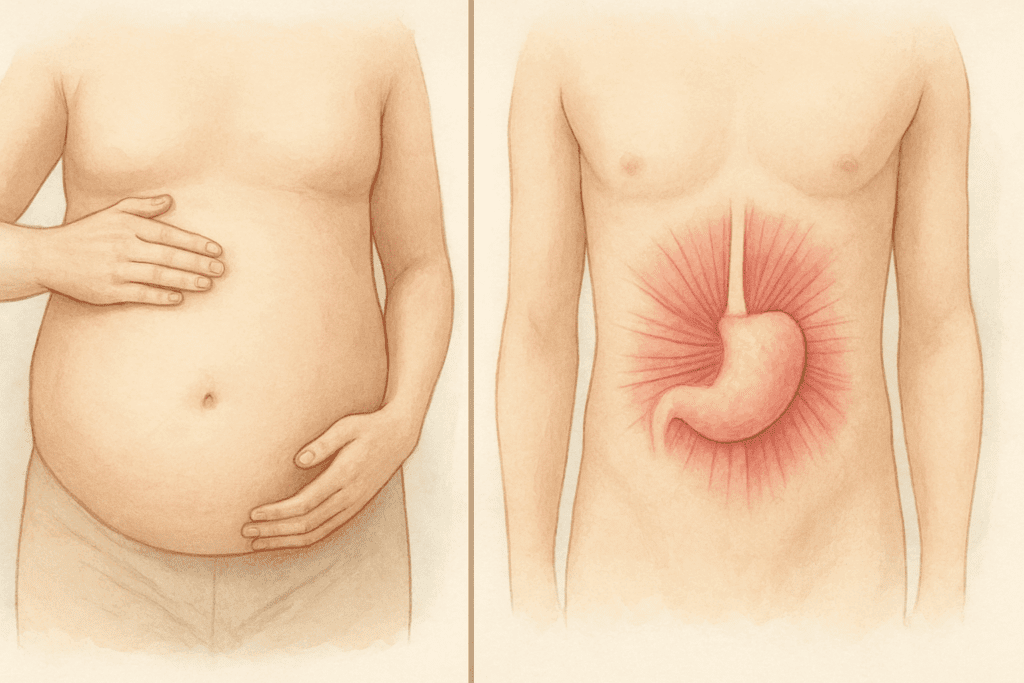
Differentiating Bloating from Stomach Tightness
While the two sensations often occur together, stomach tightness and bloating are not identical. Bloating refers to a subjective sensation of fullness or swelling in the abdomen, often accompanied by visible distension. It can be caused by excess gas production, slow intestinal motility, or changes in gut microbiota. Meanwhile, stomach tightness feels more like an internal pressure or contraction—less related to gas and more to muscular or neurological signaling within the gut. Someone describing a weird tummy feeling or an odd stomach feeling might be referring to either, or both, depending on the context.
One potential cause of bloating and tightness in the upper abdomen is small intestinal bacterial overgrowth (SIBO), a condition in which excessive bacteria populate the small intestine, fermenting carbohydrates and producing gas. This can lead to symptoms such as abdominal pain, bloating upper stomach discomfort, and even a feeling of tightness post-meal. Similarly, delayed gastric emptying, or gastroparesis, may cause nausea, bloated stomach pain, and a feeling of fullness long after eating. In some cases, these symptoms can mimic more serious gastrointestinal conditions, underscoring the importance of clinical evaluation.
Unusual Gut Sensations: When the Stomach Feels Strange but Not Painful
Sometimes the most unsettling sensations are not those that cause sharp pain but rather the vague, persistent, and hard-to-explain feelings—such as a strange stomach feeling that comes and goes. One might wonder, “Why does my stomach feel weird but no pain accompanies it?” These peculiar sensations may stem from dysregulation in the enteric nervous system or heightened visceral awareness. Essentially, the body is picking up on digestive processes that are usually subconscious—peristalsis, gas movement, or transient pressure changes—and interpreting them with exaggerated awareness.
Such heightened gut sensitivity is common in disorders like IBS or in individuals experiencing chronic stress. A stomach feeling briney or unsettled can reflect changes in stomach acidity or microbiota imbalances, both of which can subtly shift how sensations are perceived. In some individuals, these odd feelings are early signs of indigestion or changes in gut motility. They can also be the result of hormonal fluctuations, particularly in menstruating women, where progesterone slows digestion and contributes to bloating and upper abdominal ache and bloating.
The Role of Diet, Eating Habits, and Food Intolerances
What we eat and how we eat it directly influence gut sensations. Meals rich in fat, refined carbohydrates, or fermentable fibers can trigger upper stomach cramps and bloating in sensitive individuals. For some, lactose or gluten intolerance can lead to persistent abdominal bubbling feeling, strange stomach feelings, and even stomach tightness hours after eating. Likewise, rapid eating, carbonated beverages, or excessive chewing gum intake may introduce air into the digestive tract, increasing gas and leading to bloating upper stomach discomfort.
Furthermore, specific food additives, such as artificial sweeteners like sorbitol or xylitol, are known to have laxative effects and can induce a funny feeling in the stomach or symptoms of being nauseous and bloated. It is not always the content of the meal but the context—eating on the go, under stress, or irregularly—that may contribute to unsettled stomach causes. Emotional eating can also exacerbate these symptoms, particularly when combined with underlying digestive conditions.
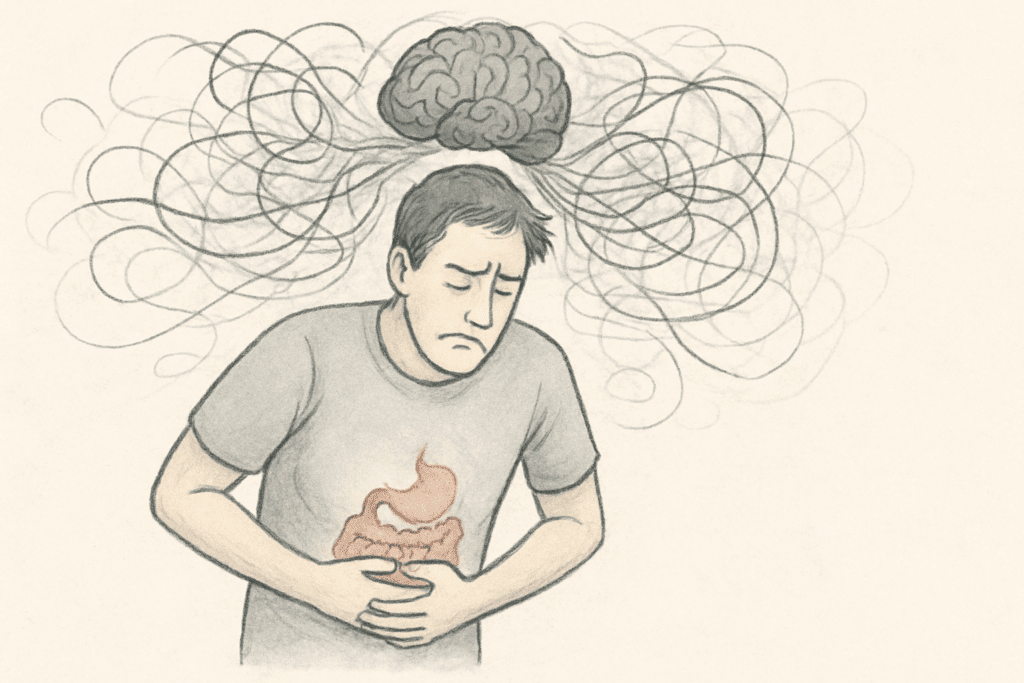
The Mind-Gut Connection: How Stress and Anxiety Tighten the Stomach
Stress does not merely affect the mind—it reshapes the gut environment. When someone asks, “Why does my tummy feel tight during stressful periods?” the answer often lies in the activation of the sympathetic nervous system. During stress, blood flow is redirected away from the digestive tract, peristalsis slows, and the gut becomes less efficient. This shift can manifest as upper tummy pain and bloating, an abdominal pain bloating nausea triad, or that constant feeling of tightness in the stomach.
This interplay between the nervous system and digestion is especially pronounced in people with a history of anxiety or trauma. The gut contains millions of neurons and produces significant amounts of neurotransmitters such as serotonin, making it highly reactive to emotional states. A person experiencing chronic stress may develop functional abdominal pain syndromes, where no structural abnormality is found, yet symptoms like stomach cramps and bloating and nausea persist. Techniques that promote relaxation—such as breathwork, yoga, or cognitive-behavioral therapy—can alleviate these sensations by regulating the stress response.
Hormonal Influences and Gender-Specific Patterns in Gut Sensations
Women are more likely than men to report symptoms such as upper stomach pain bloating, abdominal tightness, and bloating-related discomfort. Hormonal fluctuations across the menstrual cycle significantly affect gut motility and visceral sensitivity. For example, progesterone, which rises after ovulation, tends to relax smooth muscle, slowing down digestion and contributing to symptoms such as upper abdominal ache and bloating. Estrogen fluctuations can also influence gut permeability and inflammation, factors implicated in gastrointestinal discomfort.
Pregnancy, with its dramatic hormonal shifts and growing uterine pressure on the abdomen, often brings about symptoms of stomach tightness, a feeling of fullness in the stomach without eating, and upper stomach cramps and bloating. Postpartum hormonal changes may also alter gastrointestinal sensations. Understanding the cyclical nature of these sensations is essential in distinguishing between normal physiological changes and symptoms that warrant medical evaluation.
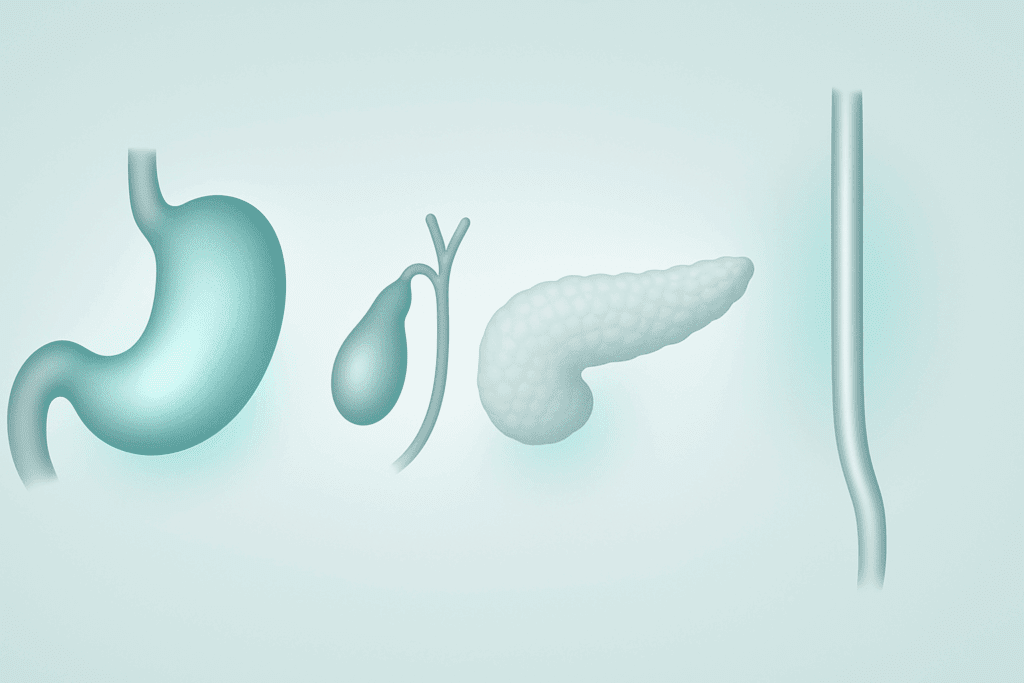
Medical Conditions That Cause Tightness and Bloating in the Upper Abdomen
While many causes of upper abdominal discomfort are benign, some warrant thorough investigation. Gastroesophageal reflux disease (GERD), for instance, can cause not only heartburn but also a tight, constricted feeling in the upper abdomen. Gallbladder disease—particularly gallstones—often presents with upper stomach pain bloating and nausea, especially after fatty meals. Pancreatitis, although less common, is another condition that produces a deep, tight abdominal pain and bloating.
Other possible culprits include peptic ulcers, hiatal hernia, or even celiac disease, all of which can cause overlapping symptoms of stomach tightness and bloating. It’s important to remember that unexplained weight loss, vomiting, blood in the stool, or persistent nausea bloated stomach pain should prompt immediate medical attention. The presence of these red flags suggests that the odd stomach feelings may stem from structural or inflammatory conditions that need targeted treatment.
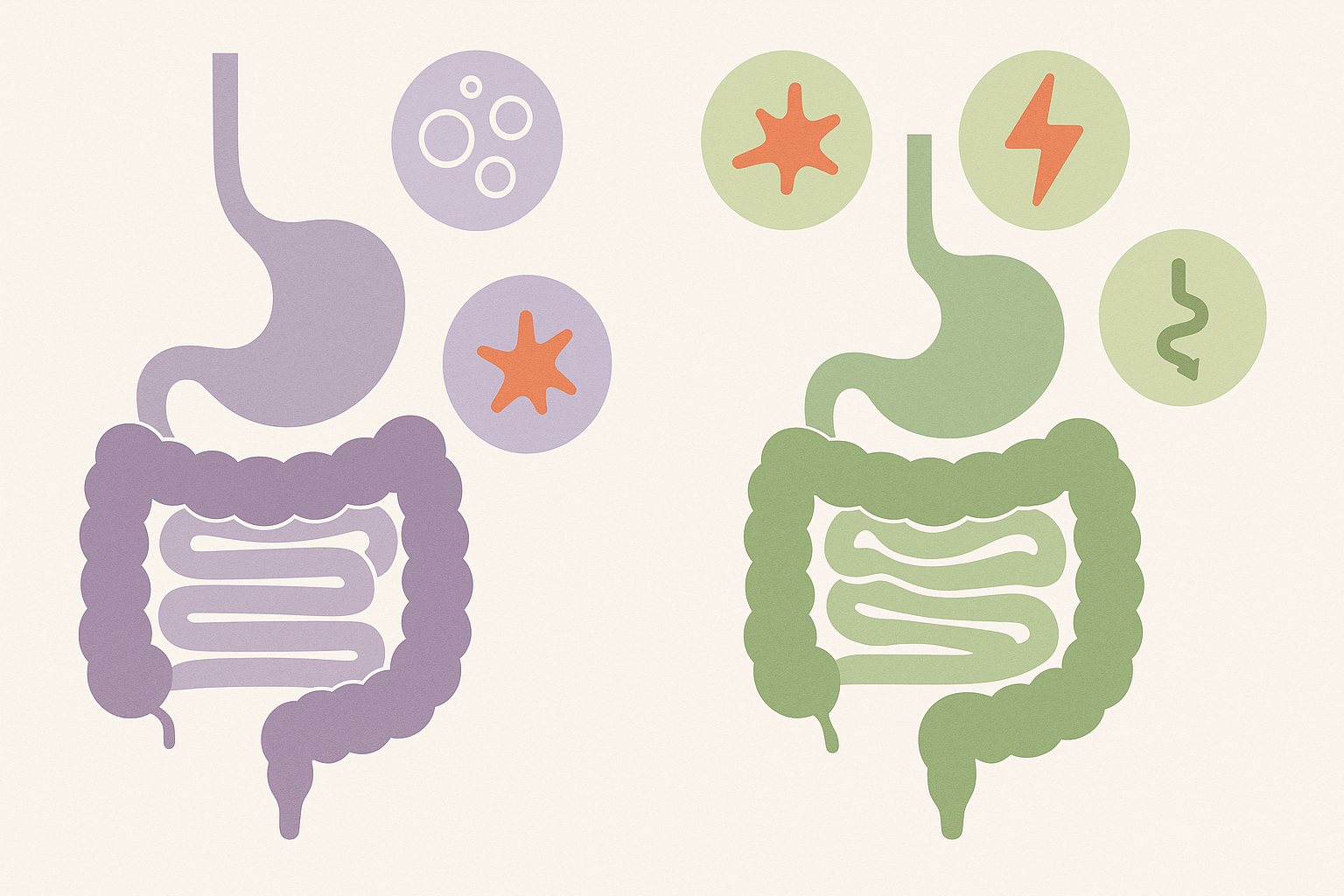
Functional Disorders: IBS, Dyspepsia, and Visceral Hypersensitivity
Irritable bowel syndrome (IBS) and functional dyspepsia are among the most common conditions associated with upper tummy pain and bloating. IBS, a disorder of gut-brain interaction, is characterized by altered bowel habits and abdominal pain. Patients often report stomach cramps and bloating and nausea, along with episodes of constipation or diarrhea. Functional dyspepsia, on the other hand, centers around upper abdominal discomfort, early satiety, and a persistent feeling of fullness in the stomach without eating.
A common feature across these disorders is visceral hypersensitivity—an exaggerated perception of normal gut activity. Even mild distension or gas can feel overwhelming. This hyperawareness leads to recurrent questioning: “Why does my stomach feel weird but no pain exists?” or “What are the causes of my unsettled stomach despite normal tests?” These disorders often require a multifaceted treatment approach, involving dietary modifications, neuromodulators, and psychological support.
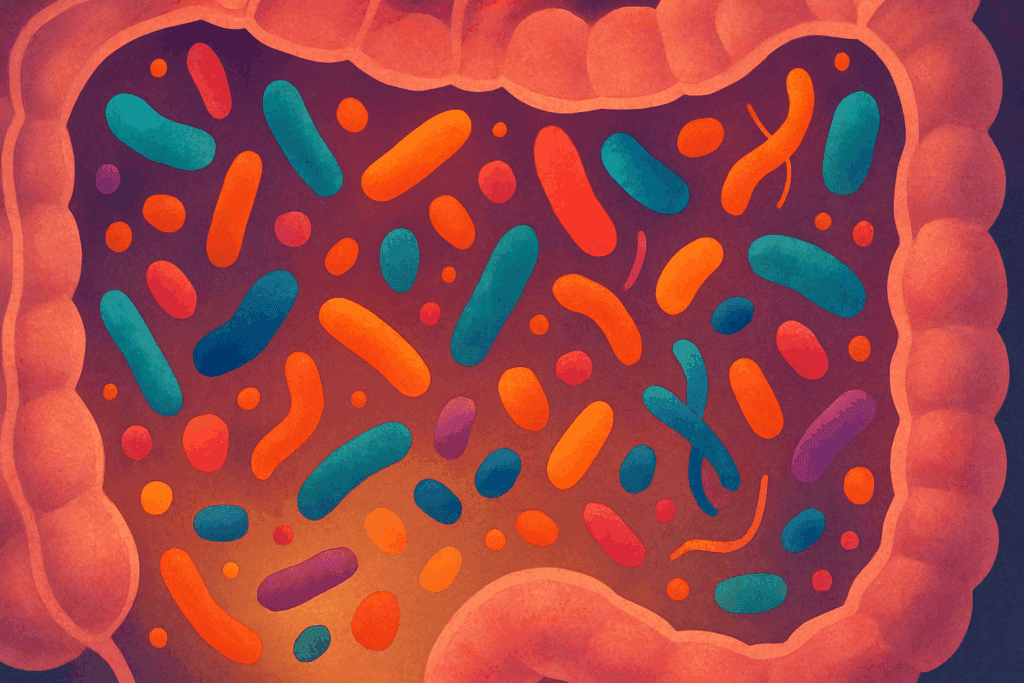
The Microbiome’s Role in Modulating Gut Sensations
The gut microbiome—the vast collection of microorganisms living in the digestive tract—plays a profound role in regulating digestive comfort. Disruptions in the microbiome can lead to increased gas production, altered motility, and heightened sensitivity. This explains why some people experience a strange stomach feeling after antibiotics, illness, or a significant change in diet. Microbial imbalances may trigger bloating upper stomach discomfort or the sensation of abdominal bubbling even in the absence of structural disease.
Emerging research suggests that probiotic and prebiotic interventions may help restore balance, potentially reducing symptoms such as stomach tightness and bloating. Fermented foods, fiber-rich diets, and judicious use of supplements can help rebalance gut flora. Nonetheless, not all probiotics work for everyone, and individual differences in microbiota composition may explain why some people continue to experience stomach cramps and bloating and nausea despite treatment.
Navigating Diagnosis: What to Ask Your Doctor
If persistent upper abdominal discomfort, a stomach feeling briney, or odd stomach sensations are affecting quality of life, seeking medical guidance is essential. Before the appointment, it’s helpful to document symptoms—when they occur, what worsens or relieves them, and how they relate to meals or stress. This information can help a physician determine whether the cause lies in dietary triggers, functional disorders, or a more serious condition.
Depending on the presentation, diagnostic tools may include blood tests, abdominal imaging, upper endoscopy, or breath tests for SIBO. A comprehensive evaluation can distinguish between common causes such as bloating upper stomach discomfort from more worrisome ones like ulcers or tumors. The journey to diagnosis can be frustrating, especially when standard tests return normal. However, recognizing that functional disorders are real and treatable is key to recovery.
Frequently Asked Questions: Understanding Tightness, Bloating, and Unusual Gut Sensations
1. Can dehydration contribute to upper stomach tightness and bloating?
Yes, dehydration can play a significant yet underappreciated role in stomach tightness and bloating. When the body is dehydrated, it often compensates by retaining water, which may lead to a bloating upper stomach discomfort that feels similar to fluid buildup. A lack of water can also slow down digestion, increasing the likelihood of abdominal bubbling feeling and constipation, both of which intensify stomach tightness. Many people report a weird tummy feeling or even nausea bloated stomach pain after prolonged dehydration, especially in hot weather or after intense exercise. Keeping your hydration levels stable throughout the day may ease symptoms such as upper stomach cramps and bloating and reduce that strange stomach feeling that doesn’t seem to go away.
2. How does poor posture affect the sensation of abdominal tightness?
Posture significantly influences abdominal pressure and digestive efficiency. Slouching, especially for long periods, compresses the abdominal cavity and may cause stomach tightness, mimicking symptoms of upper tummy pain and bloating. This physical compression can also interfere with natural digestive flow, making people feel a funny feeling in the stomach or a persistent tightness that worsens after meals. Over time, poor posture may contribute to musculoskeletal strain, which in turn creates secondary sensations like a stomach feeling briney or odd stomach feelings. Improving core strength and practicing upright posture can relieve some of the symptoms mistaken for gastrointestinal disorders.
3. Are probiotics always helpful for stomach cramps and bloating and nausea?
Not necessarily. While probiotics can support digestive health, their effects vary based on the strain used, dosage, and the individual’s microbiome. In some people, certain strains may actually increase gas or worsen symptoms like upper stomach pain bloating or abdominal pain bloating nausea. It’s also possible for new users to initially experience unsettled stomach causes such as temporary bloating upper stomach discomfort as the body adjusts to the influx of new bacteria. A targeted probiotic, ideally recommended by a healthcare provider, is more effective than general over-the-counter varieties for managing symptoms like a weird tummy feeling or a stomach feeling briney.
4. Could nighttime gut symptoms indicate something other than indigestion?
Absolutely. Experiencing stomach tightness or abdominal bubbling feeling at night could be a sign of disrupted circadian rhythms or nocturnal acid reflux. Some people wake up with symptoms like nausea bloated stomach pain or upper stomach cramps and bloating due to lying down too soon after eating or because of silent reflux. Melatonin, commonly known for regulating sleep, also affects gastrointestinal motility and may play a role in upper abdominal ache and bloating that worsens after sunset. Chronic nighttime discomfort that leads to a strange stomach feeling or the persistent question “Why does my stomach feel weird but no pain shows up during the day?” deserves evaluation, particularly if it impacts sleep quality.
5. Can traveling or flying cause upper abdominal symptoms like bloating?
Yes, changes in altitude, time zones, and meal patterns while traveling can result in bloating upper stomach discomfort and stomach cramps and bloating and nausea. Cabin pressure during flights may trap gas in the digestive tract, leading to abdominal pain bloating nausea or even that odd stomach feeling that lingers after landing. Disrupted routines—especially eating or sleeping habits—may also produce a feeling of fullness in the stomach without eating. Jet lag influences hormones like cortisol and melatonin, indirectly impacting digestion and increasing the chance of experiencing a weird tummy feeling while away from home. Staying hydrated and walking during flights can help reduce some of these symptoms.
6. Is it possible for emotional trauma to cause chronic stomach tightness?
Yes, emotional trauma can become somatically embedded in the body and manifest as persistent stomach tightness. The body often holds unresolved trauma in areas like the abdomen, which is rich in nerve endings and closely tied to the parasympathetic nervous system. This can result in chronic sensations such as a funny feeling in stomach, a stomach feeling briney, or even a sense of tightness without an identifiable digestive cause. Over time, these unresolved emotions may contribute to more prominent symptoms like upper tummy pain and bloating or upper abdominal ache and bloating. Therapeutic modalities such as somatic experiencing or trauma-informed cognitive behavioral therapy can provide relief where standard gastrointestinal treatments fall short.
7. What role do food temperature and texture play in causing strange stomach sensations?
Temperature and texture are often overlooked factors in gut comfort. Very hot or very cold foods can stimulate the vagus nerve or shock the digestive tract, sometimes producing a strange stomach feeling or immediate stomach tightness. Similarly, sticky, fatty, or fibrous textures may slow digestion and create abdominal bubbling feeling or bloating upper stomach discomfort. For individuals with sensitive guts, eating food that is too cold or highly processed may provoke odd stomach feelings without causing traditional pain. Mindful eating practices—such as eating slowly, chewing thoroughly, and moderating temperature—can significantly reduce these disturbances.
8. Why might some people feel bloated or tight without having eaten anything?
Experiencing a feeling of fullness in the stomach without eating can be caused by several factors unrelated to recent food intake. Hormonal fluctuations, particularly cortisol surges due to stress, may slow digestion or lead to water retention, creating upper stomach pain bloating or a feeling of tightness. Similarly, imbalances in the gut microbiome may produce gases or fermentation products that cause bloating upper stomach discomfort without recent meals. Certain medications, including opioids and antidepressants, are also known to contribute to odd stomach feelings by altering motility. A persistent feeling of stomach tightness or a stomach feeling briney in the absence of food should be evaluated if it recurs frequently.
9. How does abdominal massage help reduce bloating and stomach tightness?
Abdominal massage can be an effective and non-invasive method for relieving stomach cramps and bloating and nausea. Gentle clockwise massage may stimulate peristalsis, helping to move trapped gas or stool and reduce abdominal pain bloating nausea. It also supports lymphatic drainage and can relax tense abdominal muscles, diminishing sensations like stomach tightness or that weird tummy feeling that doesn’t resolve on its own. Some people also find relief from abdominal bubbling feeling after incorporating massage into their daily routine. While it may not address all unsettled stomach causes, it serves as a helpful tool in improving gut comfort when used consistently.
10. Could tight clothing worsen or even cause abdominal discomfort?
Tight clothing, particularly around the waist, can compress abdominal organs and contribute to sensations of stomach tightness or bloating upper stomach discomfort. This restriction may impair blood flow and digestion, leading to a feeling of fullness in the stomach without eating or even a nausea bloated stomach pain pattern after meals. Elastic waistbands and high-waisted styles are common culprits behind a funny feeling in the stomach or a stomach feeling briney that develops gradually over the day. Individuals with conditions like IBS may be especially sensitive to these external pressures, which can exacerbate upper stomach cramps and bloating. Looser, breathable clothing—especially during meals or when sitting for long periods—can help mitigate these effects.
Conclusion: Listening to Your Gut—The Meaning Behind Tightness, Bloating, and Weird Stomach Sensations
When your stomach sends signals—whether it’s a tight, briney sensation, an unexplained bubbling, or simply a funny feeling in the stomach—it is essential not to dismiss these as inconsequential. Our gut is a responsive, communicative system that reflects everything from dietary shifts and stress levels to hormonal changes and microbial balance. Understanding why your stomach feels tight, why bloating persists, or what causes that odd stomach feeling is about learning the language of your body.
By paying attention to patterns, supporting your gut through mindful eating, stress management, and medical insight when needed, you can begin to decode what your stomach is trying to tell you. The presence of symptoms like abdominal pain bloating nausea or the feeling of fullness in the stomach without eating doesn’t always point to something severe—but they are worth understanding. Whether you’re dealing with upper stomach cramps and bloating, unsettled stomach causes, or simply wondering, “Why does my tummy feel tight lately?”—you’re not alone. With the right tools, awareness, and support, navigating these gut sensations can lead to improved well-being and digestive peace.
Further Reading:
Abdominal bloating: Causes, symptoms and remedies

